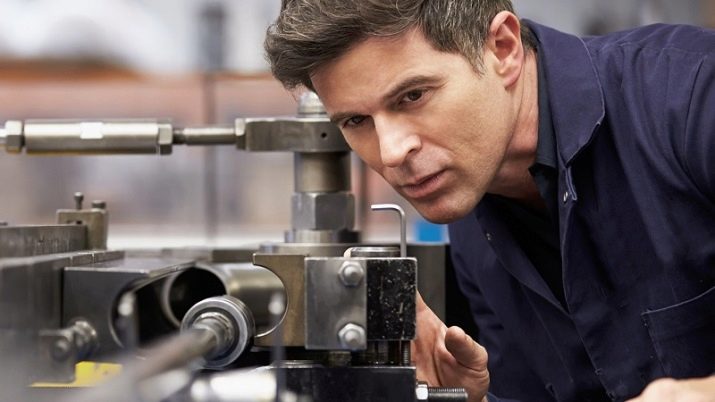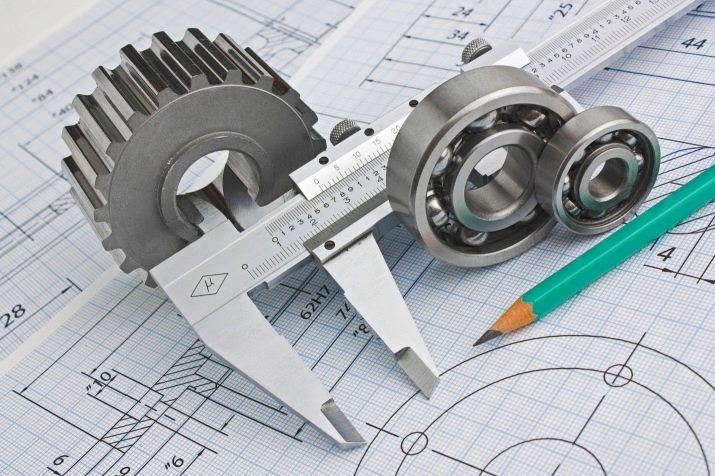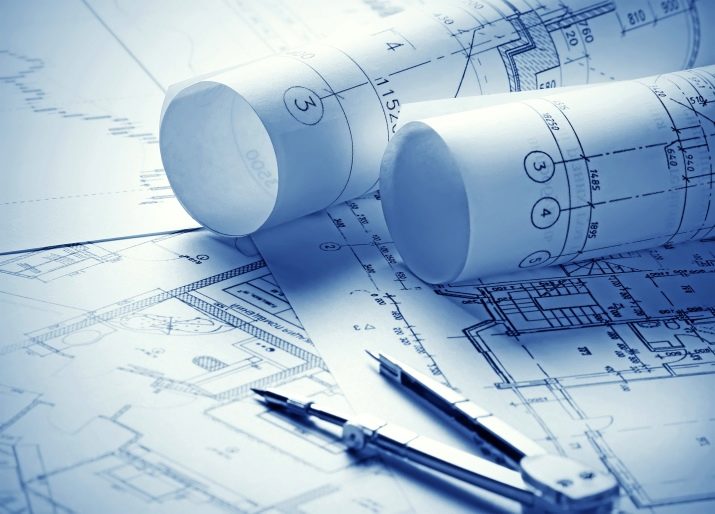Engineer categories: characteristics and assignment procedure

The profession of an engineer is considered to be in great demand. This specialization has a direct impact on the development of almost all industries and even the country's economy. It combines many industries and can be categorized.
Having familiarized yourself with the features of each of them, you can get an idea of the career growth and development of an engineer at the enterprise.

Characteristics of categories
An engineer is a specialist who deals with technical development in various industries. The main specificity of this profession is aimed at modernizing and optimizing the technologies that are presented today. Employees who have just started their professional careers are only responsible for monitoring and adjusting equipment.
Engineers are divided into several categories, each of which differs in its rights and responsibilities. A specialist can improve his qualifications by increasing the number of duties, as well as the size of the salary.

The duties of the engineers are as follows.
- Implementation of their direct responsibilities with the help of computing devices, exchange of information in the scientific and technical direction in relation to construction or information services.
- Drawing up methodological materials, regulatory and technical documents, actions to promote various kinds of proposals with measures necessary for the implementation of projects and programs.
- Carrying out a technical and economic analysis, which can explain on what grounds this or that decision was made. Implementation of this solution.
- The choice of techniques with which you can shorten the work cycle, participation in preparatory work before the implementation processes during their execution and completion.
- Endowing all industries with the necessary components that may be required to implement decision making. This includes not only documents, but also equipment.
- Participation in research, organization of projects with programs. Carrying out activities that are aimed at testing devices, their introduction into use or sale.
- Preparatory activities required for drawing up an opinion, reviews and other points that will be needed in order to complete the implementation of the project.
- Monitoring and analysis of information, technical indicators. Obtaining systematized data, making calculations on the information received thanks to modern computers.
- Creation of orders, instructions, work schedules, various schemes with maps, responsibility for reporting and determining the timing of work, along with the maintenance of other technical documents.
- Providing practical or methodological assistance in the implementation of plans, projects, contracts and programs.
- Control and examination of finished products, devices. Patronage of developed norms and characteristics.
- The instruction for the position presupposes organizational aspects regarding the professional development of personnel from the scientific and technical side. Proactive actions in creativity, proposing new working methods, improving components and ways of creating them.
- Impact on improving the organization and productivity of the enterprise.

Nature of work
The duties of an engineer are based on the use of scientific knowledge from various industries to help solve economic and technical problems. These workers are able to combine scientific discoveries with developments and put them into operation. A similar phenomenon becomes possible due to control over production in different areas. Engineers work in a wide variety of industries and are involved in virtually every stage of production.
The nature of the work will depend on the categories, as well as their branches, in which the specialist works. Based on the field of activity, the employee will be endowed with different knowledge and skills. Usually, modern computer techniques are used in the work, which allow you to test production components, design entire systems, make calculations and analyze the productivity of the effectiveness of programs.
ETKS involves many types of activities. Engineers can work in industrial organizations, in laboratories, in the construction and agricultural sectors, and it is also impossible to imagine the activities of a research center without them.
Employees can spend all their time in the office or on site visits. Some engineers travel long distances from the office to monitor an object.

Types of categories
There are several categories of engineers on the territory of Russia.
- No category. Workers who do not yet have a category can only perform simple tasks. Such specialists do not have the right to make decisions if they are not under the supervision of a more experienced employee.
- 3 category. This category is higher than the previous one and implies that a specialist can perform all the actions described earlier, as well as develop simple drawings. All his activities should be carried out only under the close supervision of engineers with higher categories. In other words, it is an executive person who carries out orders from the higher management. However, such workers are able to make a choice of auxiliary materials with which they are comfortable to interact, improve their skills and study the working documentation, develop it and sign it with the manager.
- Category 2. An employee who has received this category can perform all the previously described actions, and does not require strict supervision from a more experienced specialist. In his activities, he is based on the regulations of the company in which he is employed.An engineer of the second category has access to the creation of drawings for some components or simple fixtures. Sometimes the designer can personally assemble the designed parts, guided by the generated graphs. In most cases, a specialist in this category receives assignments from higher management and distributes them among subordinates.
- 1 category. Such an engineer can carry out all the duties listed above. Also, a specialist of the first category, with instructions from the management, is able to create new devices. He is entrusted with much more rights and responsibilities. Salaries are also markedly different from other categories. He has subordinate employees whose specialization depends on the activities that the company conducts.

If we talk about responsibility, then the engineer of the first category bears it in the following cases.
- If there is a fact of evasion of their duties or low quality of the work performed.
- In case of default on the part of subordinates, responsibility will also lie with the leader.
- In the presence of offenses that were identified during employment. For example, in the event of a safety violation.
- If the company in which the specialist works suffers material damage
The category of lead engineer is also provided. He carries out the development of any design that is used at the enterprise. He is also responsible for optimizing systems and equipment, developing equipment that can demonstrate competitiveness in the market.

Assignment procedure
There are qualification requirements, according to which an engineer is assigned one category or another. In most cases, the timing of its implementation depends on the decision of government agencies, but some large organizations hire independent commissions to improve the qualifications of their employees.
The assignment procedure is as follows.
- Third category available to specialists who have higher education and work experience in their position for at least three years.
- For the second category You will also need a higher education diploma along with at least 3 years of experience as an engineer of the third category. It requires solid knowledge of the technical component of the project, the ability to use technical documents and standards, and to plan the work of the project.
- For the first category higher specialized education will be required, the minimum experience in the second category is 3 years. This position assumes that the employee will have a deeper knowledge of all the technical and economic aspects of projects. The engineer is obliged to develop all technical acts, monitor the project, be responsible for drawing up tasks. If a specialist of the first category has worked in his place for 3 years, he can try to achieve a promotion to the position of a leading engineer. This specialty assumes that a person is able to independently manage projects, perfectly knows all the equipment for production, is able to manage a project and supervise subordinates, and communicate with other departments.
Further training can be carried out every 3 years. In some cases, the terms are reduced to 2 years. This may be influenced by work in difficult conditions, temporary replacement of a senior specialist.

Training
An engineer can get a promotion based on several indicators:
- work experience;
- the total amount of responsibilities assigned to him;
- availability of skills and knowledge;
- the level of responsibility at the enterprise.
In most cases, the category is upgraded after 3 years, if the necessary grounds for this are present. However, a specialist can get a promotion earlier with the help of special certification. The employee must submit an appropriate application, which can be divided into 2 types:
- with a request for the assignment of a new qualification category in accordance with the general procedure;
- with a request for the assignment of a new qualification category as an exception.
For the second statement, you will need to provide reasoned arguments that reveal the answer to the question of why the employee believes that he is worthy of the promotion.

The category and grade demonstrate the worker's practical skills. The experience is growing, and with it the skills, which allows you to upgrade the category. Such a labor qualification of an employee makes it possible to assess the level of his knowledge and responsibility, the presence of experience and practical component that may be required for the position held by a specialist at the moment. Based on these indicators, the level of wages is assessed.
Any engineer is able to improve his category with the help of advanced courses. However, if the employee is not able to prove the compliance of the category with skills and knowledge, the employer can, on the contrary, demote his employee or even terminate the employment relationship with him.
The process of determining the professional suitability of an employee is spelled out in labor legislation, and during the assignment of a category, the employer must rely on precisely such acts.









